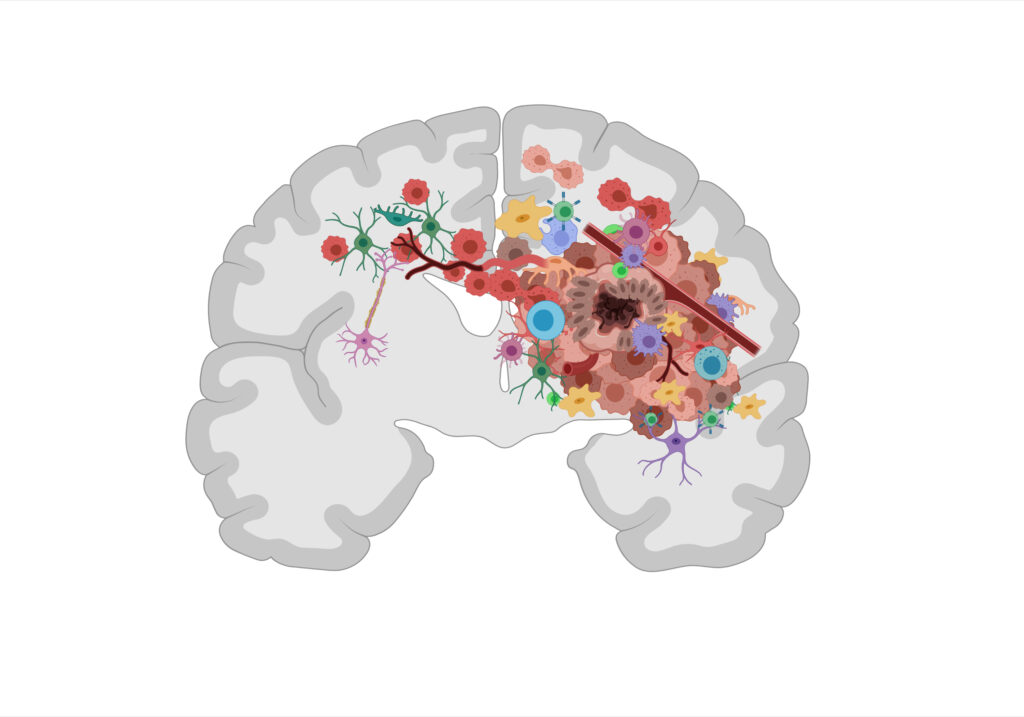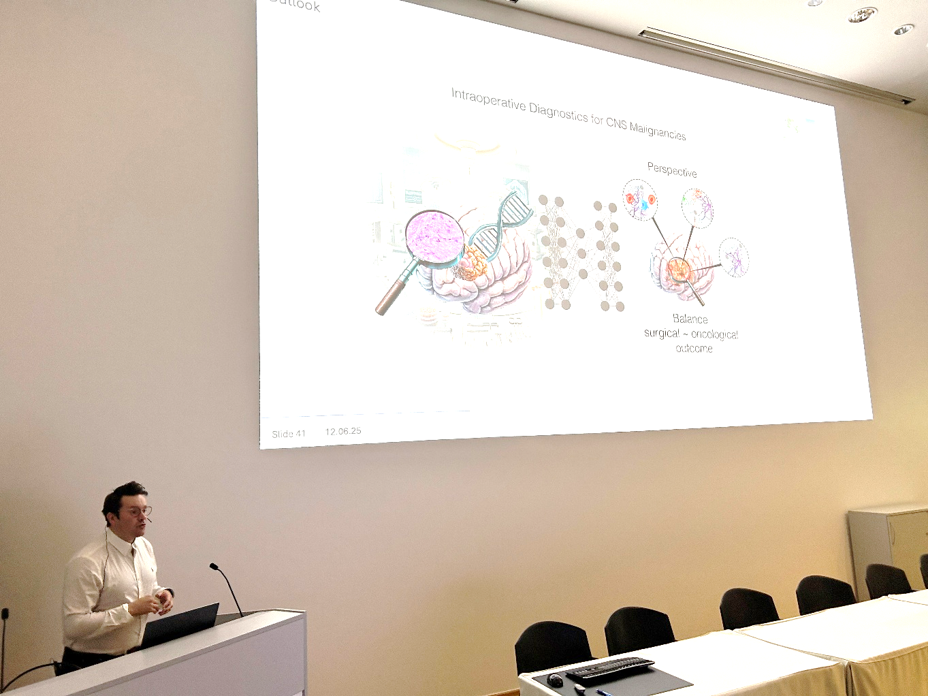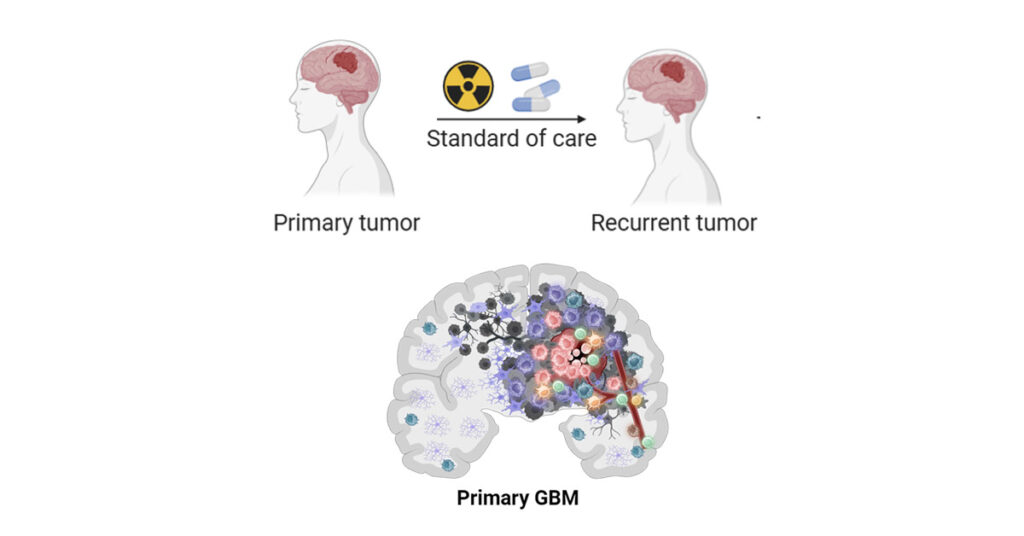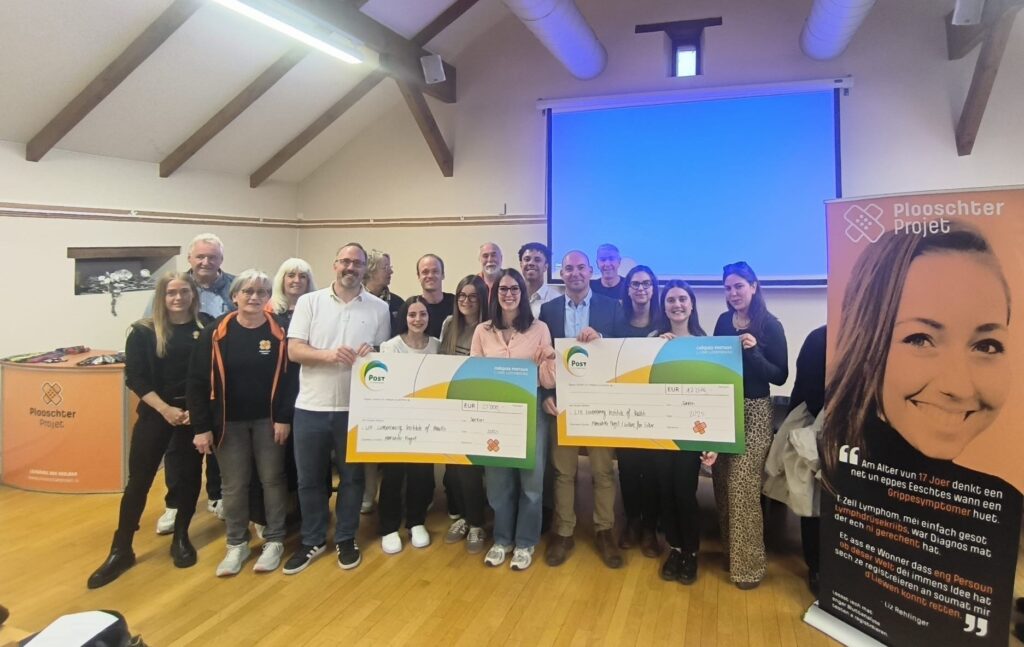Press Release
Masters of Disguise: New tactics in the hunt for shapeshifting cancers
Unmasking an aggressive cancer with the power to alter its appearance and behaviour in order to evade treatment

Glioblastoma (GBM) is a highly aggressive form of cancer that develops in the brain, leaving sufferers with an average survival time of just 12-18 months. This is despite the range of substantial treatments available, including surgical intervention, radiation and chemotherapies. The problem is that with the current tools it is virtually impossible to stop the targeted tumors from growing back.
Based on recent results from the team led by Dr Anna Golebiewska, group leader of the NORLUX Neuro-Oncology Laboratory at the Luxembourg Institute of Health (LIH), the researchers undertook a comprehensive review of the existing literature regarding this problem, with the aim of gaining new insights into potential treatment strategies.
The problem with GBM tumors, is that they are far from straight forward, containing a highly diverse population of interacting cells, including ones that carry stem cell properties. Overcoming this ‘heterogeneity’ within a tumor is difficult enough, but more recently it has been found that GBM cells also contain the ability to change the way they look and function in response to their environment. This ‘plasticity’ of GBM cells combined with inherent resistance to treatment, makes for the perfect enemy, one that can adapt and change to avoid potential threats.
As Yahaya Yabo, lead author of the study, explains: “Cellular states interact dynamically with each other and with the surrounding brain to shape a flexible tumor ecosystem, which enables swift adaptation to external pressure including treatment”. He suggests therefore, that it may be time for a new approach when it comes to targeting GBM. Indeed, if its key strength is the ability to transform and disguise itself, then perhaps this should be the target, potentially allowing other treatments to act on an unmasked foe.
“GBM eradication will require targeting the dynamic states rather than single entities” emphasises Professor Simone Niclou, director of the Department of Cancer Research at LIH. “Further studies are needed to reveal the drivers of plasticity and treatment escape. <These> should address which of the changes are fast and reversible, and which are retained in tumors long after treatment”. This should help to identify the various escape mechanisms within tumors, potentially enabling more targeted treatment approaches for patients in the future.
Overall, the study reveals a paradigm shift in the way that researchers should approach the treatment of GBM and other aggressive tumors. The remaining question, and one which will doubtless be the subject of much future research, is which of the many potential therapeutic avenues could be effective weapons in their arsenal.
Major research efforts are needed to unravel the molecular mechanisms and regulators of GBM plasticity and generate effective drugs against a moving target
Summarised Dr Golebiewska
The study was published on 21st December 2021 in Neuro-Oncology, a renowned journal of the Oxford University Press publication group, under the full title “Cancer cell heterogeneity and plasticity: A paradigm shift in glioblastoma” (DOI: 10.1093/neuonc/noab269). The publication has been selected by the editorial office for a podcast interview available at https://soc-neuro-onc.libsyn.com/glioblastoma-cell-heterogeneity-and-plasticity.
Funding and collaborations
This study was supported by the European Union’s Horizon 2020 research and innovation programme under the Marie Skłodowska-Curie ‘GLIOTRAIN’ ITN initiative [agreement No 766069]. The work was also partially supported through intramural funding of LIH through the Ministry of Higher Education and Research (MESR) of Luxembourg.
About the Luxembourg Institute of Health (LIH)
The Luxembourg Institute of Health (LIH) is a public biomedical research organization focused on precision health and invested in becoming a leading reference in Europe for the translation of scientific excellence into meaningful benefits for patients.
LIH places the patient at the heart of all its activities, driven by a collective obligation towards society to use knowledge and technology arising from research on patient derived data to have a direct impact on people’s health. Its dedicated teams of multidisciplinary researchers strive for excellence, generating relevant knowledge linked to immune related diseases and cancer.
The institute embraces collaborations, disruptive technology and process innovation as unique opportunities to improve the application of diagnostics and therapeutics with the long-term goal of preventing disease.







